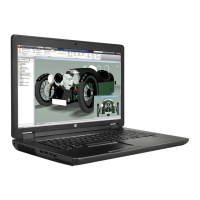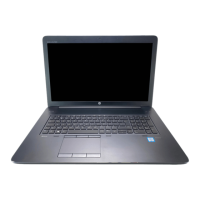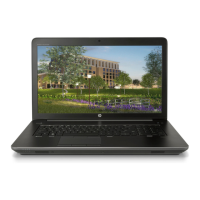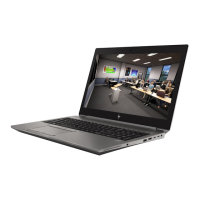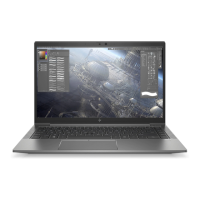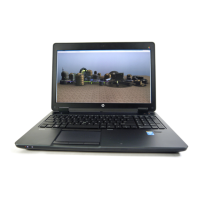1. Understand the issue
It is important to understand the issue that occurred, including related symptoms. It helps to understand the
basic computer boot-up sequence as well as the failure itself.
Boot up sequence
The computer performs several steps after you press the power button or restart the computer.
It is important to understand where in the boot-up sequence the symptoms occur. The following table lists the
phases of the boot-up sequence and explains the symptoms that may occur in each phase. For example, a blue
screen error (BSOD) often occurs during the performance phase.
Table 7-3 Boot-up sequence and associated failures
Item Procedure
Startup After you press the power button, the computer boots after all internal power rails (such as 5 V, 3.3 V) are stable.
Conrm that power lights are on and fan is spinning.
Common issues: all lights are o; troubleshooting lights are on; computer does not boot; video is absent.
POST (UEFI/BIOS) Power-On Self-Test (POST) veries that hardware components (such as processor, hard drive, memory) are
functional. When POST is complete, the HP logo appears briey and then disappears.
If there are errors, the computer may exhibit blinking lights and POST error messages, and so on.
Common issues: lights blink; error message appears; system hangs (lock up or freezes)
Performance
(operating system)
System boots to operating system, and Windows logo screen appears.
Common issues: hangs, blue screen, distorted video, driver conict, slow performance, display issue (dead pixel),
I/O issue (no speaker sound), wireless/audio unavailable, noise.
See Analyze the issue on page 108 table for detailed troubleshooting information.
ENWW General troubleshooting steps 103

